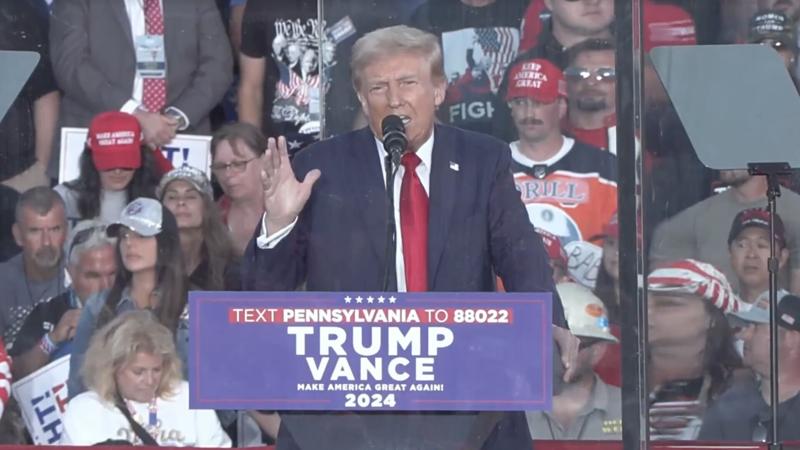Special Counsel Jack Smith’s 1,889-page appendix, broken into four parts, was released Friday morning over objections from former President Donald Trump.
Judge Tanya Chutkan ordered the release of the appendix in the Washington D.C. election interference criminal case despite concerns from Trump’s defense team.
After a stuttering start as the electronic court records system struggled to handle requests for the documents, the first batch was made public. It consisted of 723 blank pages under the word “sealed.”
The second volume of 246 pages included some of Trump’s and others’ social media posts from the 2020 election.
The third volume of 536 pages contained photocopies of excerpts from former Vice President Mike Pence’s 2022 book “So Help Me God.” It also contained news releases from several states and counties regarding the 2020 election. Also in that third batch were C-SPAN transcripts of Trump’s remarks about the outcome of the 2020 election, which he has continued to dispute.
The fourth volume of 384 pages included some files marked confidential that dealt with Pence’s role during the Jan. 6 joint session of Congress counting the Electoral College votes sealing President Joe Biden’s win. It also included transcripts and other source material and an Office of Special Counsel report.
Smith had said that much of the appendix contained sensitive information that should remain hidden. The released version contains hundreds of pages that remain under seal.
The judge said that Trump’s request to delay releasing the documents before the election would amount to the appearance of election interference, a phrase Trump has employed over the past year to describe anything he sees as unfair.
“As a result, it is in fact defendant’s requested relief that risks undermining that public interest: If the court withheld information that the public otherwise had a right to access solely because of the potential political consequences of releasing it, that withholding could itself constitute – or appear to be – election interference,” she wrote in her decision Thursday. “The court will therefore continue to keep political considerations out of its decision-making, rather than incorporating them as Defendant requests.”
Trump pleaded not guilty last year to federal charges that he engaged in a “criminal scheme” to overturn the results of the 2020 election. In September, Trump again pleaded not guilty to a superseding indictment that was changed to address the U.S. Supreme Court’s July ruling on presidential immunity.
Smith and Trump’s defense team remain at odds over how the case should proceed after the Supreme Court ruling found that presidents are protected from prosecution for official acts while in office.
The high court ruled that presidents and former presidents of the United States have “absolute immunity” when acting on core constitutional duties and “presumptive immunity” on other matters. The court said unofficial acts are not protected.






